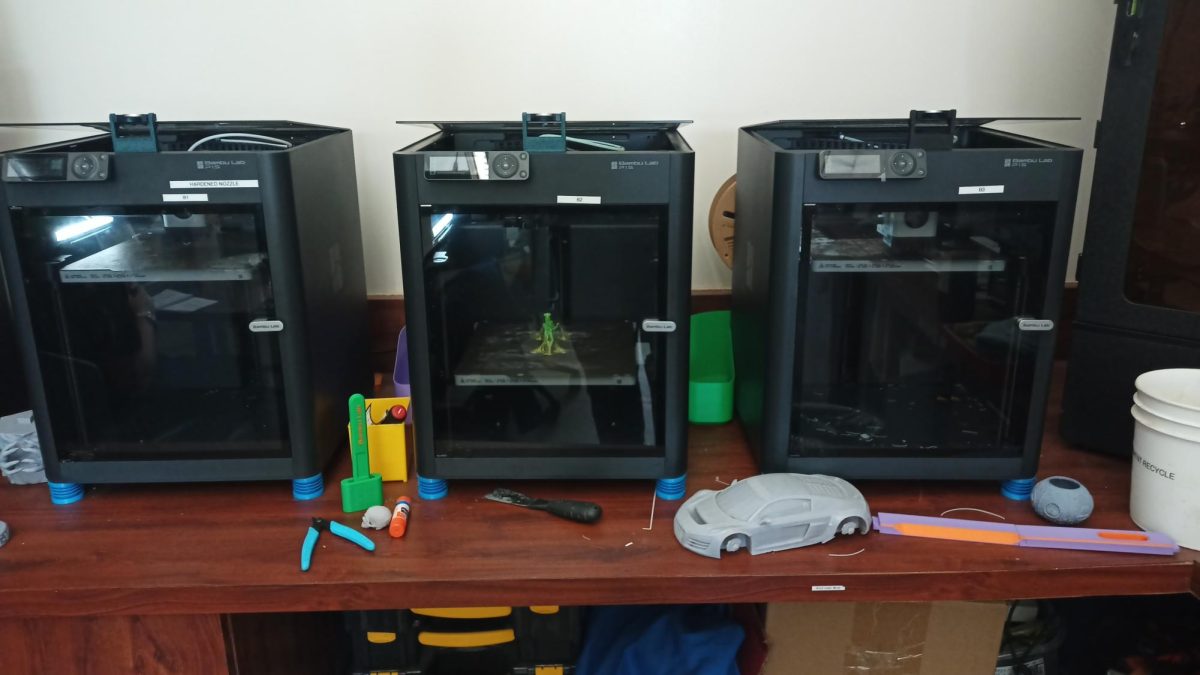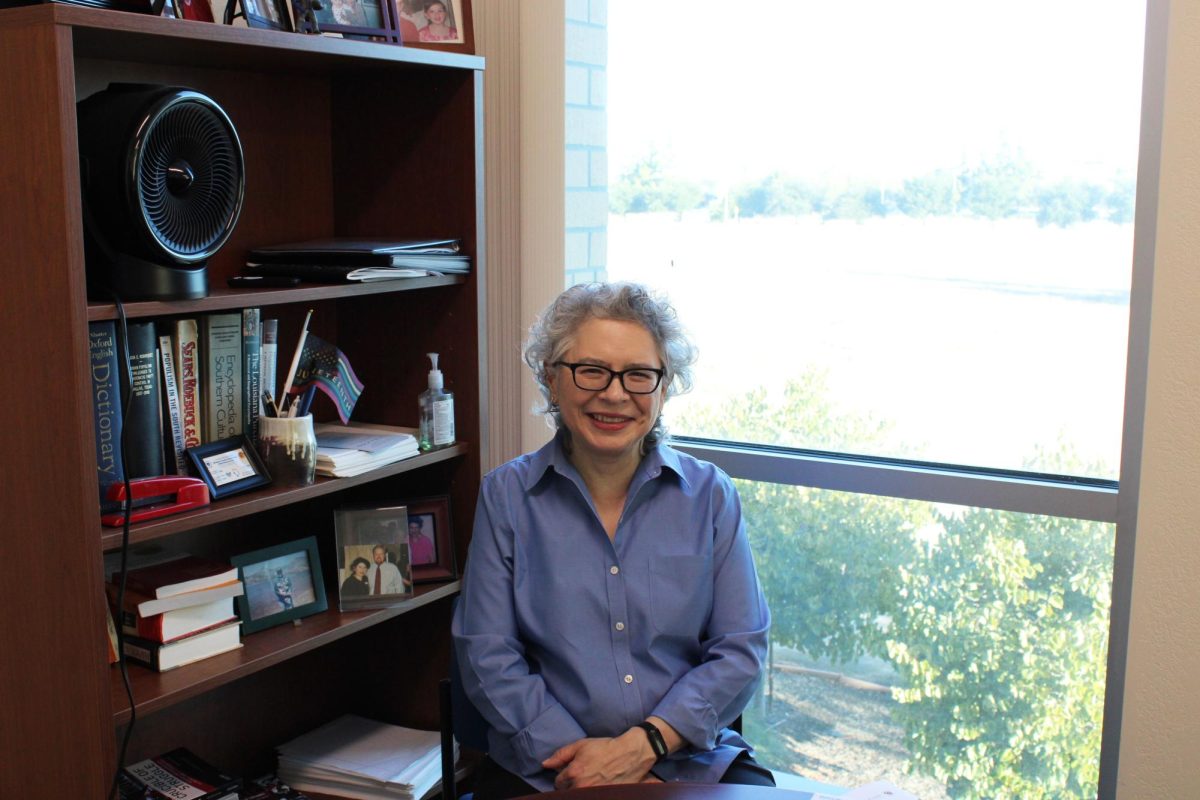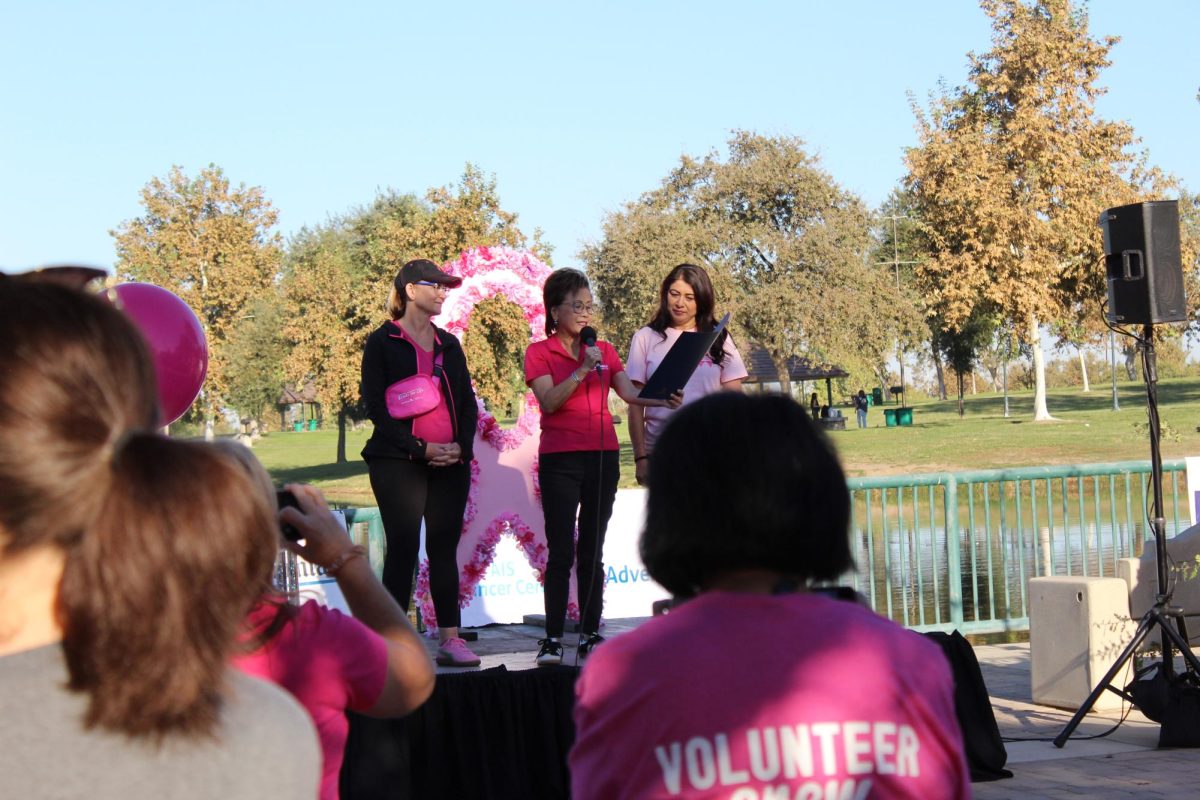Senior Staff Writer
A warm breeze blows over the silhouette of the mountains as we wait in a line for the foreman to teach us how to pick the grapes.
Imagine a simple fruit shaping your life and adopting you into a whole different culture.
Fieldwork is not just a job; it is a lifestyle.
It is hard.
It is demanding.
But for many, this is their only option.
This past summer I decided to experience what it’s like to work in the fields and immerse myself into this lifestyle.
Two months earlier my parents had started to work in the fields for the first time.
I followed them when CSUB let out for summer.
My parents left their original job of cleaning restaurants after 14 years to start a food truck business.
However, the money that they were making selling tacos was not consistent enough, so they decided to go to work in the fields.
Agriculture is one of the largest industries in Kern County.
During the summer the most common fieldwork is harvesting grapes.
My day typically started at 4 a.m.
After waking up I would shower just like any other day and I kept showering for about three days. I quickly realized it was useless to shower in the morning because when I got home I would be covered in dust, dirt, and spider webs.
When I got home the first thing I would do is take off my shirt, hat and pants and put them into a special pile of work clothes that cannot be mixed in with your regular clothes. After doing that I would shower and it seemed like I was washing mud off of me.
After getting ready in the morning, I had to prepare the food I would take to eat for lunch. I was lucky enough that my mother would make my lunch for me.
I found that most field workers take pride in the food they prepare.
The reason for that is because breaks and the lunches are the highlight of the day.
It was the silver lining in my day after working hard to the point of exhaustion
The general rules for breaks are that at 8a.m. sharp there is a 20-minute break, then at 10:30 a.m., there is a 30-minute lunch break. The last break is a 10-minute break and that comes at 1p.m.
When I took my break, it was difficult to find comfort sitting down.
There is a table and a bench to sit on, which the foreman hauls around every day, but space is limited.
People that know each other or are family always sat together and ate together.
Everyone shared their food with each other, and I got a buffet every day because I sat with my aunt and other co-workers.
The field workers take so much pride in their lunches that they do not hesitate to share their food with their co-workers.
Some people would bring tacos; others would bring some kind of soup and the younger people tend to bring simpler items like burritos or sandwiches.
I would bring whatever my mother had prepared for me.
During lunchtime, we got to bond with each other and talk about life.
I got to listen to all types of conversations like my aunt’s conversation with other ladies about her home life and how she could not get my cousins to pick up after themselves.
I was able to listen to their problems like some of the body aches they have because of the work they have been doing.
For many of the field workers, their jobs have become more than just a job.
It has become a lifestyle that their whole families have to be accustomed to.
Julia Tapia, 31, has grown accustomed to this lifestyle after working in the fields for 10 years.
She came to the United States from Jalisco, Mexico when she was two years old.
Tapia said she wakes up a 3:30 a.m. and prepares her family’s lunch including her own. She takes her kids to an aunt’s house at 4:30 a.m.
She heads out and picks up five people that she gives rides to work.
“Es puro corer,” said Tapia. I’m always on the run.
The fieldworkers that have young children from 12 or younger typically take them to be babysat.
It is tough on the kids to wake up early to be dropped off.
However, it can get tougher because the fieldworkers are not the ones looking after their children. Most of the time a complete stranger is.
These children spend more time with their babysitters than with their actual parents.
Even when they spend time together, it is mostly in a hurry.
The mornings are a rush for both parents and children.
In some cases, these children can even face danger.
Gisela Guzman, 21, is a mother of two.
She has a son who is three and a daughter who is five.
Guzman is from Michoacán and was brought to the U.S. when she was 14 years old.
I asked her what was the hardest aspect of being a field worker and without hesitation, she responded it is being away from her children.
“Me quisieron robar a mi niño ayer,” said Guzman. Someone tried to take my son yesterday.
While the babysitter was putting the other children she takes care of in her car, a woman approached Guzman’s son and tried to take him. When the babysitter realized what was happening she put herself between the woman and Guzman’s son.
I asked her how that made her feel she said, “Me dio mucho miedo porque yo no estaba con el, no estaba serca para defenderlo. Estaba trabajando,” said Guzman. I was very afraid because I wasn’t there, I wasn’t there to defend him, I was working.
She said that she continues to leave her child with the same babysitter because she has no other choice.
Guzman dreams of continuing her education because she had to dropout at 15 when she became pregnant with her daughter.
She attends night school, and she hopes to be a prime example to her children that anything is possible with hard work and determination.
However, Guzman said, “Es mas dificil ser joven y tener que trabajar por que en mi caso estoy estudiando y no tengo tiempo para verlos [sus hijos],” said Guzman. It is harder being young and having to work because in my case I am going to school and I do not have time to see them [her children].
Guzman added she wants a better career and wants to give her children a better life and that is why she goes to school.
Leaving their children with a babysitter and not seeing their children is just part of the culture that being a fieldworker requires.
These children have to accept and mold their lives to not seeing their parents as often as they would want to.
Family matters are not the only aspect of a person’s life that becoming a fieldworker shapes.
Fieldwork even shapes habits that most people may not even take into consideration.
Before becoming a fieldworker, I would get in my car and just drive. I would not care if my car is warmed up or if my tires are in good shape or if they had air, or what my tire pressure was.
I couldn’t have cared less of my oil level. All of that changed once I started driving to all these rural areas that sometimes do not even have asphalt on the road.
On average, I would drive 15 to 20 miles to work, and that would be considered close.
The furthest my co-workers and I had to go was about a one-hour drive to the foot of the Grapevine.
All of a sudden I had to pay attention to all those types of details.
Juan Pablo Santiago, 34, put this in perspective to me and showed me that I was not the only one that had these habits.
Santiago said I have to prepare an hour before I leave my house to go work, to prepare all of my tools and to check my car.
He said he makes sure the car does not need oil, that the tires are in good shape and that there are no flaws in order to get to work in good shape.
I learned this lesson the hard way when one of my back tires just blew up on my way to work.
Of course, Santiago was there to lend me a hand with all of his tools to get my car back on the road.
The fields to me have become this incredible group of people that have different backgrounds, but at the same time, share a culture.
My co-workers have become friends that share a culture with me.
They understand the struggles of waking up at three or four in the morning.
They understand what it is like when the foreman screams at the top of his lungs “Lonche!” Lunchtime!
Additionally, how much joy that brings to us.
Working in the fields is an experience that humbles you and helps you understand what it means to work for what you want.
It lets you see a different type of people from different backgrounds and different places mix in and work in peace.
Working in the fields is not easy at all, it is not just a nine to five job.
It is a culture that shapes your life, even your family’s life.















